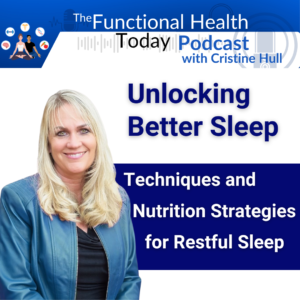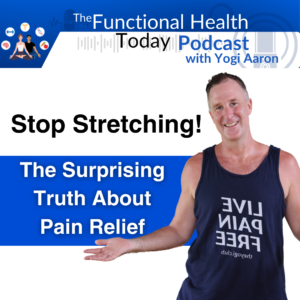
Did You Enjoy This Podcast?
What if the secrets to overcoming PTSD and chronic pain were hidden in a treatment you’ve never tried? Join Dr. Joseph Rosado, a passionate advocate for cannabis and ketamine therapies, as he uncovers how these can change lives. Discover practical insights to empower your health journey!
The medical landscape is changing, and two substances, cannabis and ketamine, are at the forefront. With their potential to address mental health and chronic pain, understanding their benefits can empower many to seek alternative treatments. Research indicates that these compounds might offer solutions for serious conditions such as depression, anxiety, and PTSD.
🌱 Expanding the Role of Cannabis

Cannabis has been found effective mostly for chronic pain relief. According to studies, chronic pain is the primary reason many individuals turn to medicinal cannabis. As people grow tired of relying on opioids and other harsh medications, the interest in cannabis treatment rises. Notably, patients using cannabis with their prescribed opiates have reported reducing their opiate intake by up to four times, leading to fewer side effects and improved overall well-being.
Frequently, doctors recommend cannabis when traditional pain management falls short. Due to its anti-inflammatory properties, THC is reportedly 20 times more effective than aspirin for inflammation and twice as powerful as cortisone. Patients can find comfort in using cannabis not just to manage pain but also to foster a state of homeostasis in their bodies, balancing various organ systems. With low doses, cannabis can even boost male libido, showcasing its biphasic effects.

Pop in your email below, and we’ll zip it straight to your inbox so you never lose it!
What is Ketamine Therapy?
Ketamine therapy involves the use of intravenous ketamine to enhance the brain’s ability to foster neuroplasticity. This psychedelic medicine is especially beneficial for individuals struggling with depression and other treatment-resistant conditions like depression. During therapy sessions, receiving ketamine helps to alleviate painful emotions and improve overall experience.
Ketamine can be used to target specific receptor sites, such as NMDA receptors, which may impair traditional treatment methods. Ketamine IV infusions allow for a unique dissociative state of consciousness, often leading to a more blissful perspective on life and neuropathic pain.
As part of the ketamine treatment plan, healthcare providers typically recommend integrating psychotherapy to complement the effects of the infusion. Patients are often guided through their user agreement and privacy policy to ensure understanding of the process and benefits.
💊 The Ketamine Revolution

Ketamine, originally a veterinary anesthetic, has evolved into a potent treatment for mental health issues, especially treatment-resistant depression and PTSD. The Yale protocol recommends a structured dosage, typically two sessions per week for three weeks, leading to dramatic results. In fact, studies show a 95% success rate in patients no longer experiencing symptoms of severe depression or suicidal thoughts.
This neuroplastic effect allows the brain to “reset,” creating new neural connections that encourage healthier thought patterns. Ketamine does not merely mask symptoms; it acts on the brain differently than conventional medications, making it a pivotal option for those who feel hopeless after exhausting traditional therapies.
Ketamine has gained attention for its therapeutic potential in recent years. Traditionally used as an anesthetic, it is now being explored for its ability to manage treatment-resistant depression, chronic pain, and other mental health conditions. Studies indicate that its unique properties may provide rapid relief for certain conditions where conventional treatments fall short. Learn more about the varied uses of ketamine and its growing role in modern medicine.
🚀 Hope for Addictive Disorders
Another significant benefit of ketamine is its application in treating addictions, such as opioid or alcohol reliance. Research indicates that it can interfere with the brain’s addiction pathways, helping those trapped in substance abuse to regain control. By working differently than typical addiction treatments, ketamine may pave the way to healthier coping strategies.
Moreover, unlike cannabis, ketamine enjoys legal status as a Schedule III drug in the United States, making it accessible through prescriptions across all states. This allows healthcare practitioners to explore this treatment avenue more freely, offering hope to patients in immediate need.
💡 A Growing Field
As more studies emerge, the medical community is embracing the capabilities of cannabis and ketamine. The attitudes toward these treatments are shifting, with many doctors advocating for their use based on evidence of their efficacy and safety. This change encourages patients to become informed and proactive in discussing their treatment options.
The prospects for cannabis and ketamine in mental health and pain management highlight a significant shift in medical practice. With continued research, these substances may not just provide relief but also unlock new pathways to better mental health, enhancing lives one treatment at a time. Embracing alternative therapies might be the key to navigating the complex landscape of chronic pain and mental health disorders.
Did You Enjoy This Podcast?
What if the secrets to overcoming PTSD and chronic pain were hidden in a treatment you’ve never tried? Join Dr. Joseph Rosado, a passionate advocate for cannabis and ketamine therapies, as he uncovers how these can change lives. Discover practical insights to empower your health journey!














